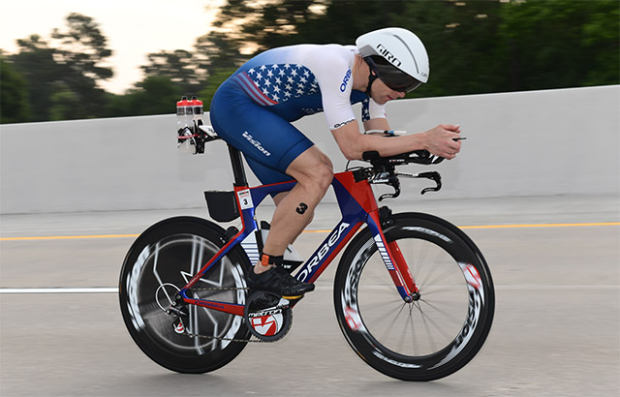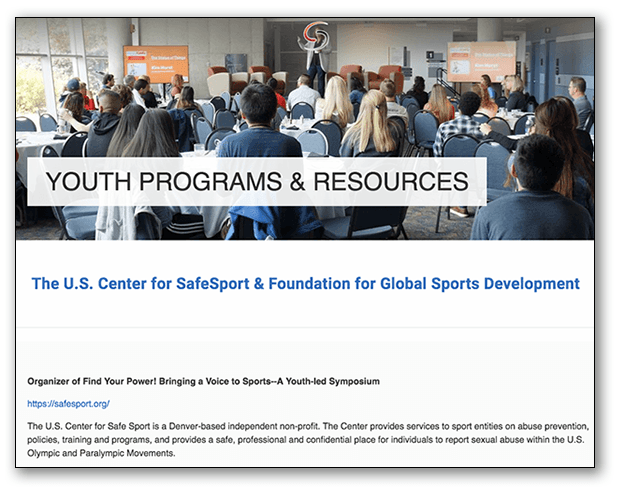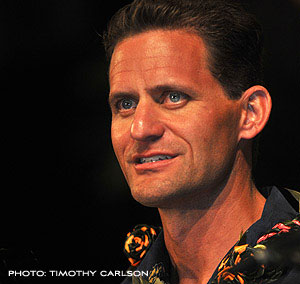Why IRONMAN Has an Anti-Doping Program
As of yesterday there are three new communications on the Andrew Starykowicz case: an updated blog post from Andrew himself; one from Ironman, and one from the PTO (Professional Triathletes Organisation), in defense of Starykowicz. We have written our own thoughts on this case, and there is a robust discussion on our Reader Forum about it as well (north of 250 posts as of this writing).
Because of yesterday’s new statements, and the PTO’s inserting itself into this, below is a follow-up for any interested party with 8 spare minutes. Don't invest the 8 minutes because I’m smarter, only because I’m older; and not because older makes me wiser, but because there is some institutional memory I have that might help all parties understand how certain things got to be. What follows is some history and some reflection.
The Professional Triathletes Organisation’s Executive chairman, Charles Adamo, is quoted in the PTO’s statement saying there’s a, “fundamental flaw in a system where a private for-profit organisation has the ability to insist on sanctions independent of the world governing body.”
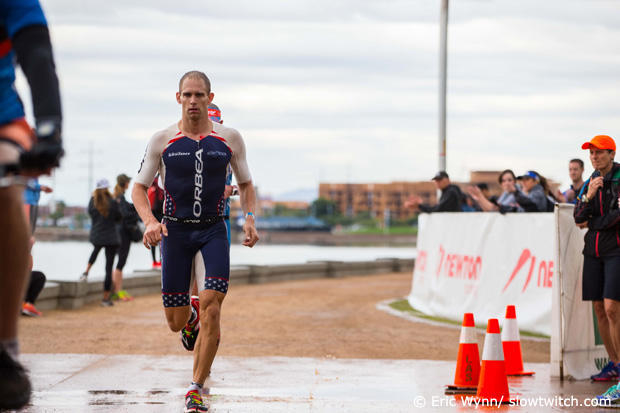
Under the management of Les McDonald – the charismatic, dictatorial architect of the ITU for its first 2 decades – the sport’s world governing body kicked IRONMAN, as well as XTERRA, Powerman, and Life Time Fitness’s races, out from under the umbrella of sports governance. This was a literal Act of Congress (McDonald forced this through during the 2004 ITU Congress). Perhaps this was payback for the ITU having lost (twice, according to my memory) while trying to strip IRONMAN of its right to call its races World Championships. The now-deceased McDonald – a tremendous man, a personal friend of mine but nevertheless a famous holder of grudges – also had various beefs with these other racing organizations (mostly over their use of “World Championship”), so they all got the umbrella pulled out from over them.
This was a problem for IRONMAN, because WADA signatory status flowed from the association with the International Federation (IF), which the ITU was for triathlon (and still is, under the new name World Triathlon), and there was now no great reason for an IF, an NF, a NADO, or anyone to test athletes not under the Federation umbrella. So, testing vanished or, at least, this was the specter IRONMAN was facing.
IRONMAN had to cut its own deal with WADA, which it did, and it became what is known as an “IF Equivalent.” It was forced to set up its own anti-doping program and remains today one of the largest sports anti-doping drug testers, spending (to my recollection) about $1.4 million annually in its program.
I found out by accident in perhaps 2008 or 2009, that the ITU had much more quietly, by another Act of Congress in 2006, welcomed those organizations back in and under the world federation umbrella for reasons not worth going into and it’s all ancient history. Les McDonald stepped down as President in 2008 and Marisol Casado replaced him; World Triathlon needed McDonald’s pugilism in its formative years; but it needed a diplomat after reaching cruising altitude and that is what and who Casado is.
Mr. Adamo states that Results Management should be, “solely the providence of our sport’s independent, not-for-profit governing body.” Results Management is the term of art for what happens in a doping case once you have an AAF (Adverse Analytical Finding). There are two problems with Mr. Adamo’s view and it’s why I recite the history. As we see, the IF has already pulled the rug out from under IRONMAN once, leaving it high and dry. Second, Results Management is a hot potato. Nobody wants it! Why? It can get expensive! Those who conduct the tests are called Testing Authorities, and regardless of how tough-talking a Testing Authority is, if there is not a fat wallet behind the testing, a reasonably well-heeled athlete may cause that Testing Authority’s knees to buckle.
What the Starkowicz example shows us is that IRONMAN was willing to go full term on this, which cost it a lot of money, which it spent during a year when it earned basically no income. And I ask myself whether Triathlon Ambrosia or Triathlon Erewhon or any other NF would have been willing to spend that money prosecuting an adverse finding arising from their athlete's participation at an IRONMAN event.
Mr. Adamo further stated, “After a year of expensive arbitration, it was recognised by an independent body that Mr. Starykowicz’s sanctions should not have been four years but instead 13 months.” That’s not entirely accurate, nevertheless I think Mr. Adamo has a point. IRONMAN was under no obligation to ban Starykowicz for 4 years in the beginning. Reasonable people can disagree on this. My only gripe with IRONMAN is in its deployment of the words "intentional" and “knowingly" with the aim of establishing consciousness of guilt. WADA’s Code does not differentiate between the intentional use of a known banned substance with the goal of enhancing performance, and the intentional use of a substance with questionable performance benefit for the restoration of health from an acute, short-term, disease. Maybe my wisdom is just wrong here; or maybe reasonable people can tune, rather than weaponize, the use of these terms to fit the circumstances.
Our sport’s world governing body does not want Results Management of IRONMAN’s races, as Mr. Adamo appears to think would be most just. I’m happy to be wrong! Upon reading the statement from World Triathlon that they’re willing to accept Results Management for IRONMAN’s adverse findings I’ll eat my hat. They not only don’t want the expense, they especially don’t want Results Management of athletes not part of their core program. Beyond that, sports governance is chock full of conflicts of interest, which is why WADA and the NADOs (like USADA) were conceived.
Mr. Adamo could make a stronger case by saying that Results Management should be the sole province of the worlds NADOs (National Anti-Doping Organizations, like USADA), with IRONMAN as the backstop in such case as there is no responsible party (i.e., if the athlete is from Erewhon). But, unless I misread the documents, USADA handled both of the final two hearings in this case (as the Respondent). So, whatever beef Mr. Adamo has with IRONMAN, his beef is also with USADA.
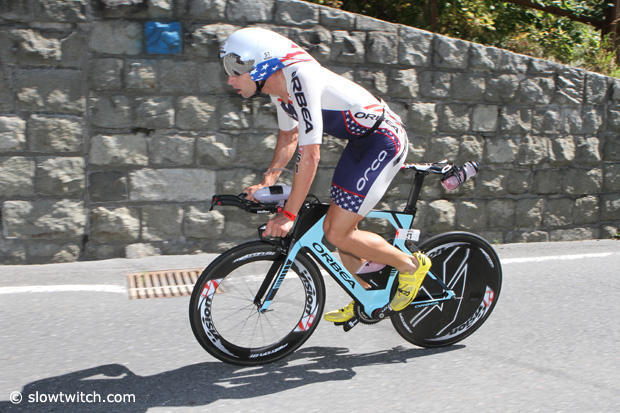
One further point of housecleaning if I may. In Andrew Starykowicz’s blog there is an entry where he publishes the unedited transcript of the October, 2020 arbitration hearing. He notes this quote from the head of IM’s anti-doping program, Kate Mittelstadt: "We knew he did not have a valid TUE at the time of the race." Starykowicz makes what seems to me a veiled inference that USADA informed IRONMAN of the TUE denial days before Starykowicz himself was apprised of the denial. Starykowicz writes, “Apparently the ‘best endeavors’ were notifying Ironman.” My takeaway from this blog entry is that Starkowicz reads this as, we knew he did not have it, and we knew it at the time of the race. The more benign interpretation is that we knew Starykowicz did not have [a granted TUE] in his hand at the time the race took place.
IRONMAN states in its release of yesterday that it not only didn’t know of the TUE’s denial before IRONMAN Florida, they didn’t even know that a TUE had been applied for until the results of their drug testing in Florida came back with an adverse finding. This is important, because it would have been pretty poor form to let an athlete race with foreknowledge of a declined TUE request. Better to have said, "Hey bud, word to the wise, don't race, turn right around and get back on the plane." But of course this conversation would never take place because athletes get notified of the disposition of their TUE requests before anyone else.
Nevertheless I made a pest of myself at USADA over the past week, drilling down hard on this question, because it had the responsibility of notice. It answered with, “USADA’s TUEC unanimously determined that the alleged medical need and proposed treatment with vilanterol did not meet the ISTUE criteria. Following this review, the TUEC denied the TUE application for vilanterol on November 8, 2019.” But this did not absolutely foreclose on the possibility of a side conversation between colleagues, so I pressed, and USADA confirmed that, as regards the TUE’s denial for Vilanterol, “Yes, we notified the athlete first.”
Andrew Starykowicz knowingly took and raced with a banned substance, he deserves a ban, but he is not a doper. I regret if the binary thinkers can't abide that and, no, a personal like or dislike of him can't bend the trajectory of a clear set of facts. Because of an unfortunate set of bad luck and bad decisions – and perhaps personality clashes – the last year has been unnecessarily hard on him in particular. A ban commensurate with the act was there to be had. I don’t know how we got here. I agree with Mr. Adamo that all the power sits with prosecutor, and none with the athlete, and I agree with him that rank unfairness is sometimes the result.
But the rank unfairness is a result of the system; not the Results Manager. Had USADA handled Results Management (and it largely did) every indignity suffered and every dime spent by the athlete would have been spent anyway. If Andrew Starykowicz is a battle front by proxy in war the PTO has declared on IRONMAN, I guess that’s an unimportant detail. If the PTO is after legitimate athlete empowerment and equity, I’m behind them 100 percent. But the PTO’s beef is not with IRONMAN in this case, it’s with The Code, and with U.S. Federal Statute, and if Mr. Adamo wants to make the system more just for athletes he needs to consider the plight of the accused both with USADA and with Safesport.
If you believe there is a, “fundamental flaw in a system where a private for-profit organisation has the ability to insist on sanctions independent of the world governing body,” there is a history to this (above) and there is a reality on the ground.


